After My Mum Lost Her Battle With Cancer, I Realised I Had High-Functioning Depression
updated on Jan 23, 2018
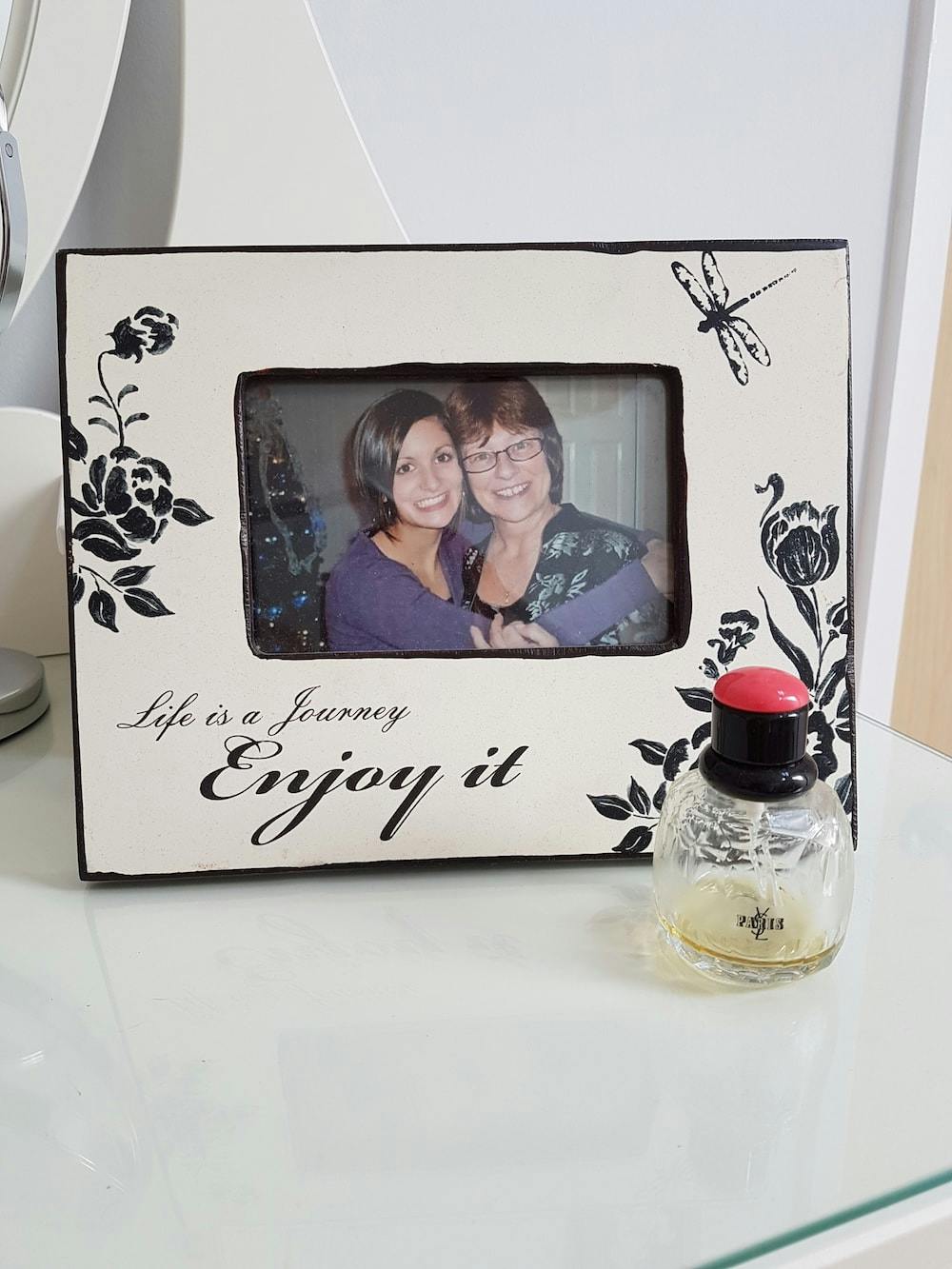
Laura Graham put on a brave face following her mum’s death,
but through wanting to make a positive difference in the world in memory
of her mum, she recognised the emotional impact that grief had on her
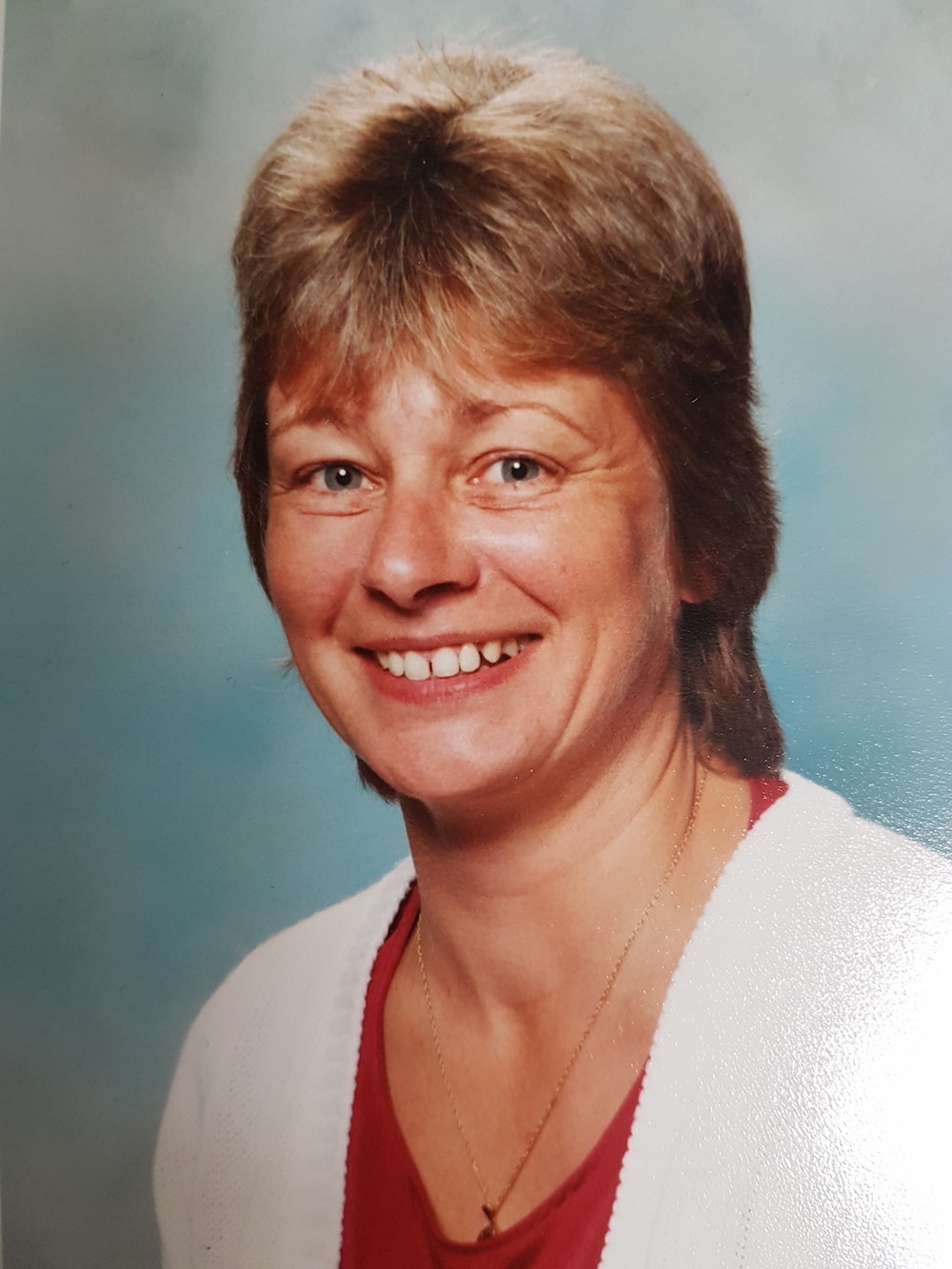
We’d known it was coming, but nothing prepares you for that day. You’re looking at this person lying there who was always your strength, and now they’re gone. It was third time unlucky in mum’s case, as she had beaten breast cancer twice before. It was a persistent disease and even though she had won the battles, ultimately, it had won the war. The world became dark. Literally everything seemed dim, as if the brightness had been turned right down.
Mum had suffered with very bad health in the 10 years before her death. She’d had a heart attack, both hips replaced due to arthritis, and a very painful hernia. This was interwoven between the three breast cancer diagnoses and rounds of treatments. The first time, I was hopeful she would beat it. The second time, I figured she’d beaten it before so she could do it again. When she did, we threw her a surprise “you didn’t die” party, which she loved. The third time, I knew it was different.
Mum wanted to die at home and dad promised her she would. He became her full-time carer. I lived two hours away and would visit on the weekends, but it wasn’t enough. Dad was on call 24/7, with very little respite available. On the Saturday, she was in bed trying to play her Nintendo DS but her brain had been affected by that stage, and she couldn’t quite work it out. By the Tuesday, she’d gone. It was 5am when dad woke me. I was glad I was there – to help, to make calls, to meet with the undertaker.
Because I was crying so much, I thought I was processing the grief
It was my sister’s wedding two days after her death, and I painted my face on and welcomed guests as if nothing had happened. Even at the funeral I went into hostess mode, smiling, talking to everyone, working the room. Commenting on what a brave fight she’d put up and that at least she wasn’t in pain anymore. I was back at work the following week and did everything without thinking. I thought I was being strong.
I was 26 and had lost my mum. She was too young. I was too young. Of course, I cried a lot. Mornings were the worst. I’d be getting ready for work and sobbing from the time I woke up to the moment I’d leave the house. When I shut the door behind me, I was shutting the pain in and not allowing it to feature until the next morning – that awful moment when I opened my eyes and for a second she wasn’t dead. Then I’d remember.
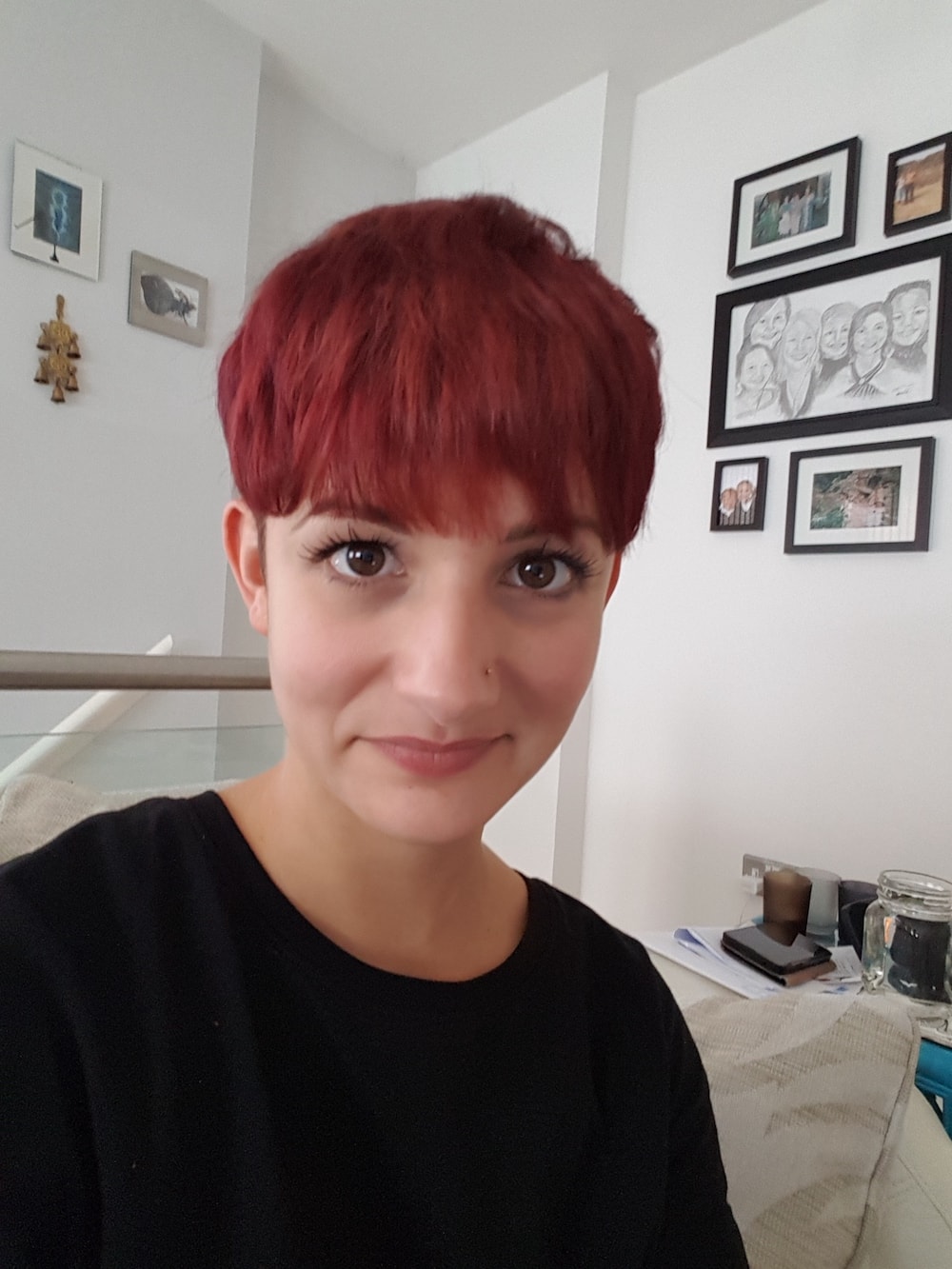
Because I was crying so much, I thought I was processing the grief. I wasn’t. I didn’t understand what depression was at the time. I thought it meant that you couldn’t get out of bed, or that you would be in hospital, or on medication. I was living my life, seeing my friends and working, so I couldn’t be depressed. People mentioned counselling and I did go about six months after she died, but I only managed one session. It was 2009 and no one I knew had ever been to counselling. It felt self-indulgent and weak. I just figured that people die all the time and no amount of talking about it would make any difference. I self-medicated with alcohol, but because I was only binge-drinking at weekends, I thought I was just being a normal 26-year-old.
At 30, I changed jobs. I started working for a welfare-to-work company helping the long-term unemployed get back into work. I was quickly responsible for people claiming health benefits, the majority of whom were suffering with mental health problems. I learnt a lot in order to support them, and it was then that I started recognising the severity of what I’d been through. Seeing other people struggle made me realise I wasn’t alone and, actually, what I was feeling was normal. I understood that my perception of depression was all wrong and just because I was functioning, didn’t mean I wasn’t suffering. I started to realise that I hadn’t processed my grief at all.
In 2016, seven years after mum’s death, I really began focusing on what kind of person she was. She was very positive and always saw the best in others. She wanted to help the most vulnerable in society and championed the underdog. I felt like I needed to do something that would continue her positive legacy, and the positivity blog “It’s Character Building” was born. One of the first blogs I posted was about mum’s death. I just wrote without thinking and it all came out. The guilt I felt for not doing more, not telling her how amazing she was; I hadn’t told anyone before. The post helped me to recognise that I should have talked about it, and posting it for the whole world to read was freeing. The fact that someone in Brazil has read about my mum, and what we went through, brings me happiness. It also allowed me to open up a dialogue with friends about how I was really doing. Instead of taking the standard “I’m fine” as an answer, they would ask again: “But really, how are you?”
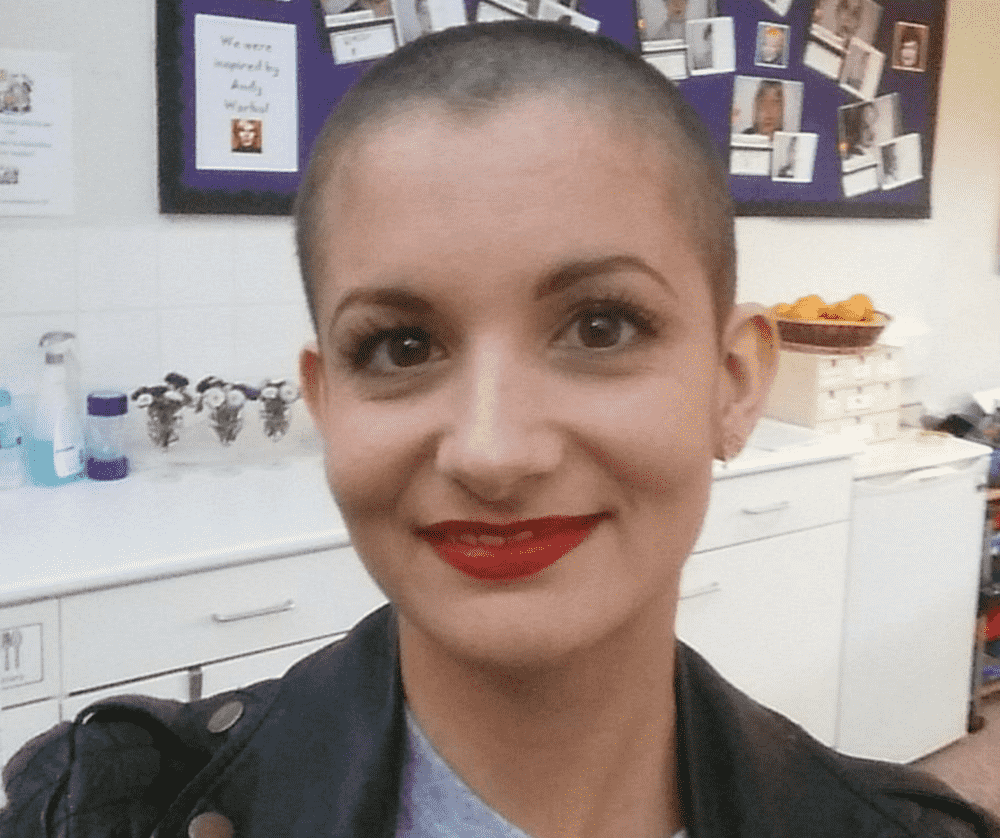
In September 2016, a month after I started the blog, I shaved off all my hair. My friend’s mum had been diagnosed with breast cancer and though I couldn’t cure her, I could raise money for Macmillan. I raised £1,700 for the charity and the process of shaving my hair was life-changing. It helped me come to terms with something that mum went through that always troubled me deeply. It also forced me to make peace with my appearance and discover body positivity.
With Macmillan in the forefront of my mind, I contacted them to share my story. I have since written five guest blogs for them on topics such as surviving Mother’s Day, brave the shave, and carers week. I love the fact that my words are able to help people in some tiny way, and with that, I have a small amount of control back.
Promoting the blog online led me to discover like-minded people like Lorraine and Lee. They set up The Lewis Foundation, which provides free gift packs to cancer patients at our local hospital, Northampton General. I was so moved by what they do that I contacted them to volunteer.
Volunteering with them has given me a sense of pride, happiness, and community. It’s helped to work through the grief, because I’m now doing something positive that I wouldn’t be doing had I not lost my mum. It also restores my faith in people. When I see what Lorraine and Lee have created and all the other people who contribute to raising money and creating the packs, it reminds me that the world is a good place and that we can all do our bit.
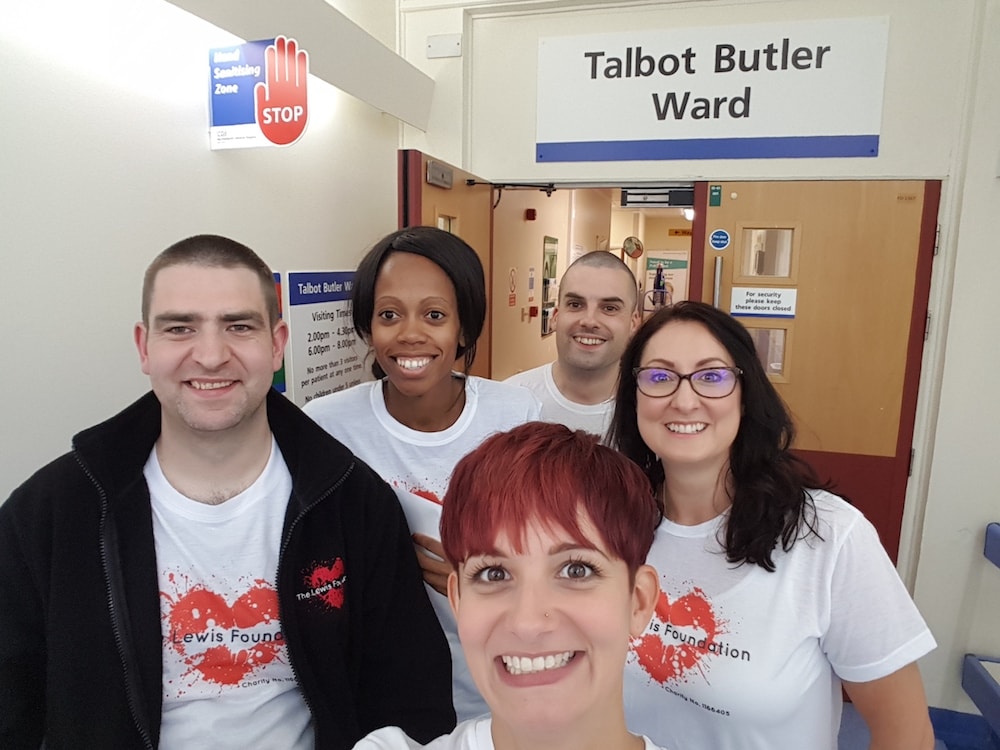
Lots has happened in the last year that’s helped me see the light at the end of a very long tunnel. I wouldn’t have done any of this if it wasn’t for the difficult time I went through. None of it can bring her back, but I’ve taken this awful event and made something good come from it.
The reason I named my blog “It’s Character Building” is because it refers to when mum would tell me not to worry, because whatever was affecting me was building character. She couldn’t have been more right. It’s been a long journey and I wish I knew eight years ago what I know now. I wish I’d started this chain of events long ago, but maybe by sharing my story it’ll help someone else, and that’s something I know mum would be proud of.
Losing a loved one is a difficult time, but as Laura discovered, we do need to process what’s happened. Sharing our story – with friends, a professional or in writing – is part of that journey. Laura’s courage allowed her to recognise her depression, and to use her experience to benefit others. As a result, she’s keeping her mum’s memory alive by making a positive difference in the world.

Join 100,000+ subscribers
Stay in the loop with everything Happiful
